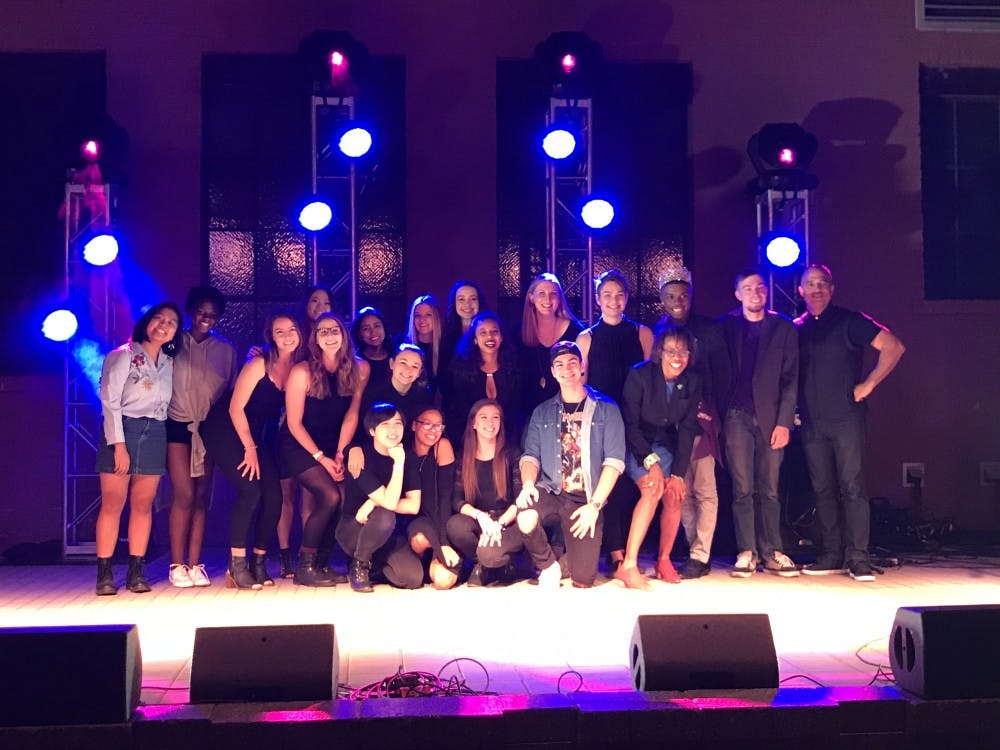Students from all campuses showcased guitar shredding, baton twirling and more at ASU's Got Talent competition on Nov. 7 at Civic Space Park.
Colleen Jennings-Roggensack, the vice president of cultural affairs for ASU and executive director of ASU Gammage, was among those giving feedback to performers.
She called the show "stunning".
"We have such talented students and such a diverse array of talent," said Jennings-Roggensack. "Everything from singing to baton twirling to spoken word to guitar ... it was just fabulous."
When she judges, Jennings-Roggensack said she applies the "head-heart-gut-test," in which she uses her instincts to gauge how captivating a performance is.
"I want to see if something captures my heart and if it surprises and hits me in the gut and then if cerebrally it stays with me, I know it's something that will engage me," she said.
The performances did not disappoint, she said.
"I find that I lean in when I am captivated, and when I'm not I lean back — and I leaned in this evening," Jennings-Roggensack said.
With a panel of local performers and academics as judges, each contestant was able to gain important critical feedback.
"(One) comment about just being a story-teller in my baton twirling was really cool for me because I'm a film maker," Latavia Young, a film and production junior said.
Young said she faced challenges because the dark light and low ceiling did not provide the best environment for her talents to shine.
"Typically, baton twirling is done in a gym," said Young. "A lot of my routine involved a lot of movement ... and it just wasn't enough space."
Genevive Damasco, a nutrition junior whose talent was spoken word, also said she felt uneasy when performing.
She said she wasn't sure if a regular audience would be as open-minded or have the same mood as a spoken word audience would.
However, Damasco said she felt a positive reaction from the crowd and the judges.
"I really appreciated what everybody had to offer, and I think it was such a cultivating and loving environment," she said. "It was very encouraging in a sense where the criticism that the judges gave was really helpful."
The first place prize of $1,000 went to the all-female A Capella group, the ASU Pitchforks, who were voted by the audience as ASU's most talented act.
With the winning cash, McKenzie Hayes, a music therapy junior and president of the group, said the team wants to finish producing an album the group has had in the works for the last two years.
"The funding kind of fell through at one point," she said, "So we're hoping now with this money we're going to be able to produce the album."
Hayes said she was proud of her team after what she described as a "rough couple of years".
"We mesh really well together personality-wise and that helps our sound mesh so much better," said Hayes. "I think a lot of girls just needed that reassurance that what we are doing sounds good and it is powerful and it is making an impact on a ton of people."
Performing in front of a large crowd is a daunting task regardless of the chosen talent.
"The bravery it requires to stand amongst your peers in the dark and do your thing was quite marvelous," Jennings-Roggensack said.
Reach the reporter at ihaugen@asu.edu and follow @haugen_dazs on Twitter.
Like The State Press on Facebook and follow @statepress on Twitter.




